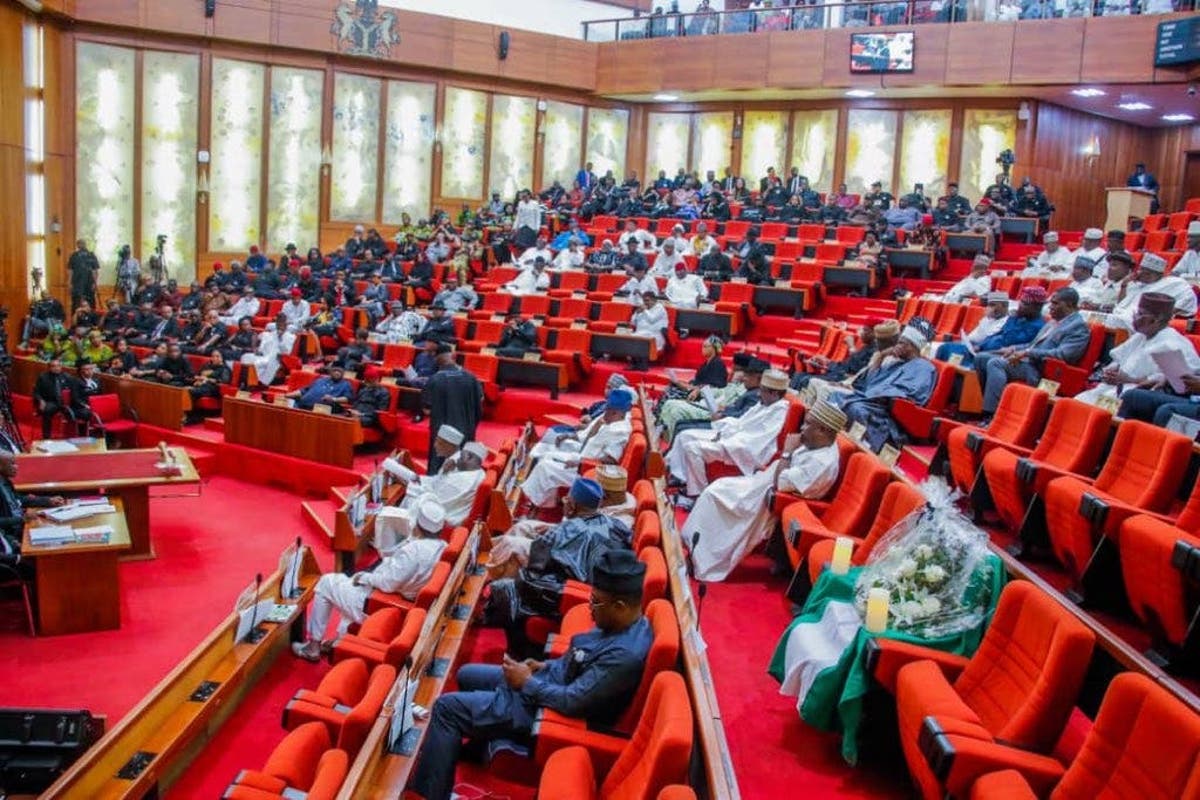Fresh Expenditures Delay 2021 Budget Passage To Monday
The inclusion of a late request for additional expenditure from the executive arm has pushed the passage of the 2021 budget from this week to next Monday.
InsideBusinessNG had reported Monday that the budget will be passed this week following the advance work on the document and associated bills like the Medium 2021 – 2023 Medium Term Expenditure Framework (MTEF) and Fiscal Strategy Paper (FSP). and the finance bill that was passed Tuesday.
The late request also led to the delay of the consideration of the MTEF/FSPand its step down to Thursday from today that it was initially scheduled.
President of the Senate, Ahmad Lawan, announced the passage of the document on Monday at Wednesday plenary following a motion moved by the Senate Leader, Yahaya Abdullahi (APC – Kebbi North); and seconded by the Minority Leader, Enyinnaya Abaribe (PDP – Abia South).
According to the Senate President, “The delay in the passage of the budget was to allow the Appropriations Committee include a late request for additional expenditures from the Executive arm of government”.
“Our Committee on Appropriation has been working round the clock. We had planned to receive the report of the Committee on Appropriations today Wednesday, but there was a late request for some more expenditures from the Executive arm of Government, and we want to ensure that our Committee does work to produce a clean document, so they can’t present this document today”.
“However, the Committee has said the report will be ready by the weekend and we will consequently, hold a special session on Monday, the 21st of December, 2020, just to consider and pass the budget 2021″, noted Lawan.
“This is in keeping with our legislative agenda of ensuring that the annual budget has a January to December cycle. We did that last year, and by the grace of God, we will do it again,” Lawan said.
President Muhammadu Buhari had on Thursday, October 8, 2020, presented the N13.08trillion budget estimates for the 2021 fiscal year before a joint session of the National Assembly. and which subsequently passed Second Reading on the floor of the Senate on Thursday, October 15, after a two-day debate on the general principles of the Bill by lawmakers. This paved the way for its defence by the ministries, department and agencies (MDAs)
Also, the Finance Bill 2020, which is expected to aid the implementation of the 2021 budget when passed into law, was forwarded to the National Assembly by President Buhari and the accompanying letter was read at both sittings of the Senate and House of Representatives on Tuesday, December 1, 2020. The Finance bill was passed Tuesday.
Details of the fiscal estimates presented by the Federal Government show that N128 billion spending was proposed for the National Assembly in 2021; N500 billion for stimulus fund, while pension, gratuities and retirees benefits are to gulp N520.6 billion.
InsideBusiness recalls that the Federal Government had proposed N125 billion for the National Assembly in the 2020 Budget, which was however jerked up to N128 billion and also retained in the revised 2020 Budget.
The breakdown of the budget further shows N5.66 trillion allocated to Recurrent (non-debt); N3.05 trillion to Personnel Costs; Capital expenditure of N3.58 trillion; Special Intervention amounting to N350 billion, and Special intervention (Capital) of N20 billion.
In the 2021 Budget, the Federal Government projected new borrowings of N4.28 trillion (including foreign and domestic borrowings) while N3.12 trillion was set aside for debt service.
These details were contained in the presentation of the report of the Joint Committee on Finance and National Planning on the 2021-2023 Medium Term Expenditure Framework and Fiscal Strategy Paper by the Chairman, Senator Solomon Adeola.
The report was submitted to the Senate and thereafter approved by the legislators, paving the way for the President to submit the budget last October
Upon the consideration of the report of the Joint Committee on Finance and National Planning on the 2021-2023 Medium Term Expenditure Framework and Fiscal Strategy Paper, the red chamber approved the daily crude oil production of 1.86 million barrels per day for 2021, 2.09mbpd for 2022 and 2.38mbpd for 2023 in view of average 1.97mbpd over the past the years.
It noted that a very conservative oil output benchmark has been adopted for the medium term in order to ensure greater budget realism and disruptions due to attacks and sabotage in the Niger Delta which has substantially abated for a while.

The Senate also approved that the oil benchmark oil price of $40 per barrel because of the clear evidence of wide consultations with key stakeholders and the age-long fiscal strategy of addressing the oil price shocks by the adoption of a lower than forecast oil price benchmark for fiscal projections over the medium term.
It approved the exchange rate of N379 per dollar proposed by the Executive for 2021 to 2023 given the determination of the Central Bank of Nigeria to pursue unification around its exchange rate over the medium term.
It noted that investors and exporters transact dollars at market-determined prices, which was expected to narrow significantly with the implementation of the rate unification, among other policies of the CBN to liberalize the forex market, meeting demands while building the nation’s external reserves.
The Senate also resolved to commence the immediate legislative actions to amend the Fiscal Responsibility Act 2007 to improve revenue-generating and remittance capacity of agencies of the Federal Government.
The red chamber approved the projected Gross Domestic Product growth rate of 3 per cent given the Federal Government’s response fiscal policies adapted specifically to contain the damage from Covid-19, including the N500bn stimulus fund.
It equally approved the projected inflation rate of 11.95 per cent and said the Fiscal deficit estimate of N5.16trn, be sustained due to the Federal Government’s conservative approach to target setting and its determination to improve the collection efficiency of major revenue-generating agencies.



Comments are closed.